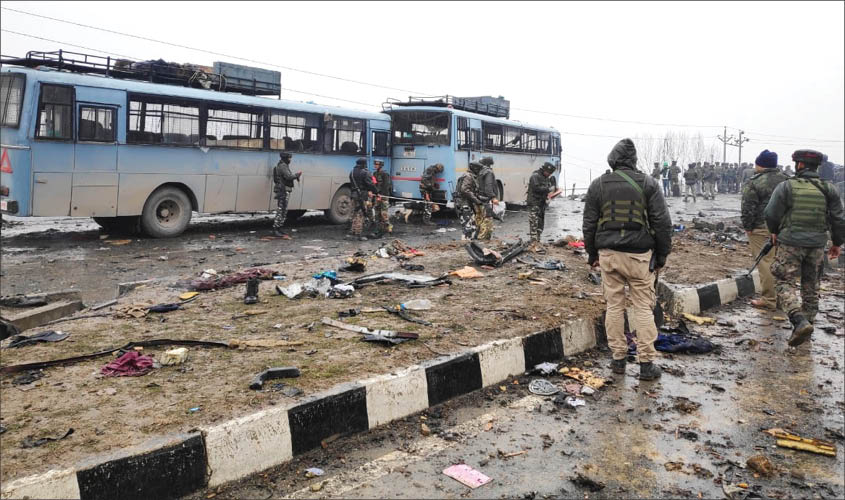New Delhi: More than 50 days after the Pulwama attack, in which over 40 Central Reserve Police Force (CRPF) personnel lost their lives, the government has not yet been able to identify and take action against top officers who were responsible for the procedural lapse and failure to gather intelligence related to the massive attack.
Official sources, however, claimed that this was not surprising as in multiple incidents in the past too, the Ministry of Home Affairs and the Ministry of Defence failed to punish the officers in whose watch terror attacks took place.
The sources said that the Pulwama attack was a result of procedural lapse, as a convoy of 78 buses, moving more than 2,500 jawans, was allowed to move at the same time on the same route, creating a serpentine queue akin to sitting ducks. A senior official with a security agency said, “To be very frank, we are fortunate that we did not suffer many more casualties. The convoy was more than 1 km long and we would have suffered many more casualties had the terrorists decided to use multiple suicide bombers. In no other country, where the threat against security forces is so high and well pronounced, are troop movements done so recklessly. We are investing a lot of money on our top brass and advisors who are posted in the Kashmir valley and this kind of lapse should not have happened. The government should have taken swift and strong action against the top officers and advisors for this unnecessary and avoidable loss of so many lives.”
Finger is also being pointed at the huge intelligence gathering mechanism, which is stationed in the valley, and its failure to generate any inputs relating to the attack, which, according to officials, took days of planning and execution by a group of local individuals who were being helped by handlers based in Pakistan Occupied Kashmir.
Another official asked: “Preparations for such attacks generate a lot of chatter, online and offline. Resources needed for this attack, including the car, the explosives, the bomber, the tracking of the movement of the CRPF convoy would have involved a lot of interactions between different individuals, spanning multiple weeks. The bomber was a classified terrorist and yet no one cared when he went missing before the actual attack. This was a monumental lapse of intelligence gathering in a place where we have devoted our maximum resources. Was any action taken against the intelligence apparatus that failed to do its duty?”
According to officials, the government was conducting multiple inquiries to look into what led to the Pulwama attack and it amended standard operating procedures (SOPs) related to the movement of troops and the rank of officers who would lead such convoys.
This is not the first time that no action has been taken against officers for their lapses. In the past five years, multiple Army bases—the Uri Brigade headquarters, the Sunjuwan Camp, and the 166 Field Regiment in Nagrota—have witnessed terror attacks which resulted in the death of 40 soldiers. However, the government, despite the top leadership publicly expressing displeasure over attacks on military bases, has restricted itself to transferring the officers concerned or moving them to less demanding positions as a “punishment”. The official quoted earlier gave an example of how more than three years after the Pathankot attack, a show cause notice was only recently served to a senior defence officer for dereliction of duty.

